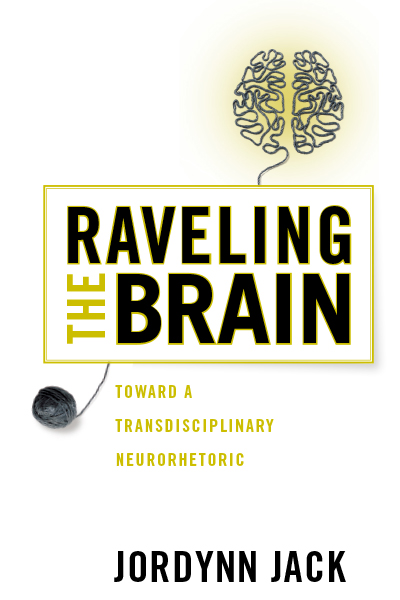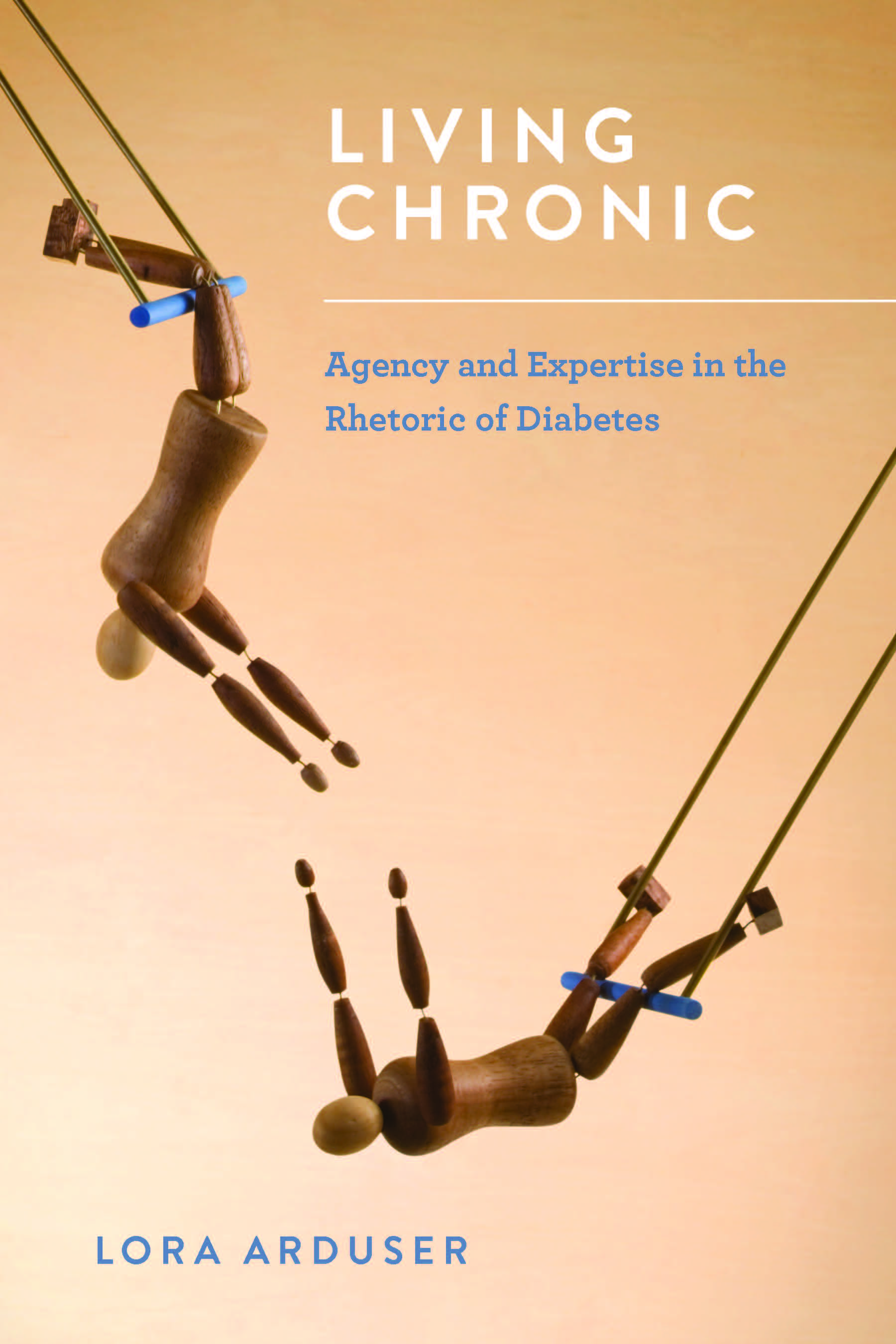“This collection makes an invaluable contribution to conversations about the dynamic nature of the rhetoric of health and medicine. The assembled essays spotlight the innovative possibilities of this still-emerging sub-discipline and its novel approaches to theory, method, and history.” —Jeffrey Bennett, author of Banning Queer Blood: Rhetorics of Citizenship, Contagion, and Resistance
“The editors have achieved a remarkably consistent quality of research and writing throughout the chapters—an incredible accomplishment. I look forward to the theoretical, methodological, and pedagogical impact that this collection will have on our field.” —Amy Koerber, author of From Hysteria to Hormones: A Rhetorical History
The rhetoric of health and medicine (RHM) is a growing and vibrant area of inquiry incorporating scholars working across a variety of fields and disciplines. While this makes it a source for rich and innovative scholarship, this emerging field is in need of a guiding text that can bring together the disparate work spread across multiple disciplines and institutional spaces. Rhetoric of Health and Medicine As/Is: Theories and Approaches for the Field answers this call by providing an in-depth and wide-reaching analysis of the state of the rhetoric of health and medicine and offering core concepts and critical theories to ground research moving forward.
With a foreword by Judy Segal and in sections that address interdisciplinary perspectives, representations of health and illness in online spaces, and health activism and advocacy, this volume proceeds in a unique format: essays tackle these key topic areas through case studies ranging from food and its relation to public health, to apps that track fertility, to mental health and disability, to racial disparities that exist in public health campaigns about sudden infant death syndrome (SIDS). The essays within each section are then followed by responses from prominent scholars in the rhetoric of health and medicine—including John Lyne, J. Blake Scott, and Lisa Keränen—who take on the central theme and discuss how the theory or concept under study can and should evolve in the next stages of research. Unifying the essays is a consideration of RHM as a theoretical construct guiding research and thinking alongside the conceptual parameters that constitute what RHM is and can be in practice. In asking questions about the role of rhetoric—both as analytic and productive framework—in health and medicine, this volume engages with broader theoretical and ethical concerns about our current healthcare system and how healthcare and medical issues circulate in all the social, cultural, economic, and political aspects of our world.
Contributors
Judy Segal, Lisa Melonçon, S. Scott Graham, Jenell Johnson, John Lynch, Colleen Derkatch, Philippa Spoel, Drew Holladay, Margaret Price, Emily Winderman, Jamie Landau, John Lyne, Molly Kessler, Amanda Friz, Stacey Overholt, Sarah Ann Singer, Jordynn Jack, J. Blake Scott, Rebecca Kuehl, Sara Drury, Jennifer Anderson, Jennifer Helene Maher, Amy C. Hickman, Lisa B. Keränen, Cynthia Ryan, Barbara Heifferon, and T. Kenny Fountain
Lisa Melonçon is Professor at the University of South Florida and editor of Methodologies for the Rhetoric of Health & Medicine. S. Scott Graham is Assistant Professor at the University of Texas at Austin and author of The Politics of Pain Medicine: A Rhetorical-Ontological Inquiry. Jenell Johnson is Associate Professor at the University of Wisconsin-Madison and author of American Lobotomy: A Rhetorical History. John A. Lynch is Professor at the University of Cincinnati and author of What Are Stem Cells? Definitions at the Intersection of Science and Politics. Cynthia Ryan is Associate Professor at the University of Alabama at Birmingham and editor of City Comp: Identities, Spaces, Practices.
Contents
Foreword
Judy Z. Segal
Introduction The Rhetoric of Health and Medicine As/Is
Lisa Melonçon, S. Scott Graham, Jenell Johnson, and John Lynch
Section 1 Interdisciplinary Perspectives
Chapter 1 Health Humanities as an Interdisciplinary Intervention: Constitutive Rhetoric, Genre, and Health Citizenship
Colleen Derkatch and Philippa Spoel
Chapter 2 Mediating Minds: Disability Studies and the Rhetoric of Mental Health
Drew Holladay and Margaret Price
Chapter 3 From HeLa Cells to Henrietta Lacks: Rehumanization and Pathos as Interventions for the Rhetoric of Health and Medicine
Emily Winderman and Jamie Landau
RESPONSE TO INTERDISCIPLINARY PERSPECTIVES Mapping the Healthscape: Onto, Eco, and Otherwise
John Lyne
Section 2 Representations and Online Health
Chapter 4 Enactments of Self: Studying Binaries and Boundaries in Autoimmunity
Molly Margaret Kessler
Chapter 5 “Did you have sex today?”: Discourses of Pregnancy and Big Data in Fertility-Tracking Apps
Amanda Friz and Stacey Overholt
Chapter 6 Theorizing Chronicity: Rhetoric, Representation, and Identification, on Pinterest
Sarah Ann Singer and Jordynn Jack
RESPONSE TO REPRESENTATIONS AND ONLINE HEALTH An Analytic of and Beyond Representation for the Rhetoric of Health and Medicine
J. Blake Scott
Section 3 Health Citizenship and Advocacy
Chapter 7 Rhetoric as Rhetorical Health Citizenship: Rhetorical Agency, Public Deliberation, and Health Citizenship as Rhetorical Forms
Rebecca Kuehl, Sara Drury, and Jennifer Anderson
Chapter 8 Challenging Racial Disparities in and through Public Health Campaigns: The Advocacy of Social Justice
Jennifer Helene Maher
Chapter 9 Decolonizing Medical Discourse through Promotora Practices in Community Health
Amy C. Hickman
RESPONSE TO HEALTH CITIZENSHIP AND ADVOCACY On Seeing Health Rhetorics as Deliberation, Power, and Resistance
Lisa B. Keränen
Afterword Perspectives on the Rhetoric of Health and Medicine As/Is Past, Present, and Future
Cynthia Ryan, Barbara Heifferon, and T. Kenny Fountain
List of Contributors
Index





